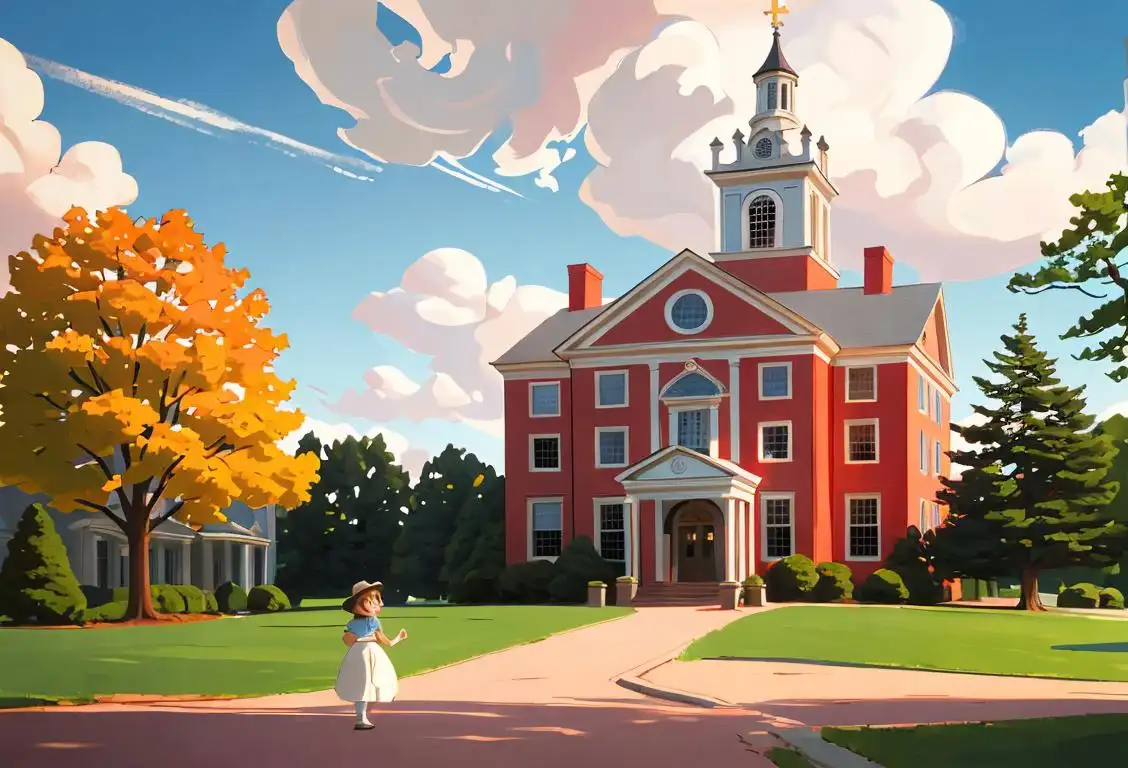National Opposite Day

Ever wonder why your pet dog woofs instead of meows? No? Well, brace yourselves, for National Opposite Day does encourage just that! It's a topsy-turvy 24-hours, when up is down, your morning coffee is your bedtime milk, and people who loathe Kale suddenly munch on a bowl of it. Celebrated with abandon on the internet, this epically amusing day has left a sizeable digital footprint through the years.
When is Opposite Day?
It's national opposite day on the 17th September.
Truly Scribble-Scrabble Fun: The History of National Opposite Day
It's uncertain where this backwards bonanza originated, but it's certain that National Opposite Day has left a legacy of whimsy and confusion. Its chaotic charm seeped into every corner of the internet, influencing everyone from everyday keyboard tappers to social media giants!
A Deep Dive into Fantastic Figures
Our trusty cyberspace nets caught a whopping 4842 mentions of Opposite Day, demonstrating its widespread popularity. A peak occurred on September 17th, 2016, when online citizens flipped the bird (no, not like that, remember, we're wholesome!) and decided to dive headlong into the realm of opposites. Why this specific day? Well, the answer, in true Opposite Day spirit, is anything but obvious.
From Kale to Counter-Strike: The Impact on Diverse Spheres
National Opposite Day has a profound effect on various sectors. Whether it's loved ones exchanging roles, die-hard steak fans chowing down on tofu, or footballers trying out ballet, the potential for reversal and reinvention is endless. Property investors suddenly gleam pearls of wisdom on romance, while financial whizzkids chime in on awareness issues they'd otherwise have little business with.
Not NSFW, It’s SFW on This Day!
In an amusing twist, anything edgy turns family-friendly on National Opposite Day. Turns out when the world goes topsy-turvy, even the spiciest of contents turn wholesome and heartwarming!
History behind the term 'Opposite'
1350
From Latin to Old French
The term 'opposite' originated from the Latin word 'oppositus', which means 'placed against'. In the 14th century, it made its way into the Old French language as 'opposite'.
1382
First Recorded Usage
The first recorded usage of the term 'opposite' in English can be traced back to the year 1382. It appeared in the Wycliffe's Bible translation, where it referred to something being 'set over against' or 'facing' something else.
1600s
Expansion of Meanings
During the 17th century, the term 'opposite' started to expand its meanings beyond its original spatial connotation. It began to be used in a broader sense to describe things that were contrary or markedly different in attributes or qualities.
1828
Inclusion in Dictionaries
In 1828, the term 'opposite' was officially included in dictionaries, solidifying its usage and establishing it as a recognized word in the English language.
1904
Forming Opposite Pairs
The concept of forming opposite pairs became prominent in the early 20th century. Many disciplines, including philosophy, mathematics, and linguistics, started to explore and study the concept of opposites extensively.
Present
Ubiquitous Use
The term 'opposite' has become an indispensable part of everyday language. From simple concepts like black and white, hot and cold, to complex philosophical and scientific ideas, the notion of opposites continues to shape our understanding of the world.
Did you know?
Did you know that in the spirit of National Opposite Day, social media giant, Facebook, flipped their logo for a day on the peak day of celebrations, September 17, 2016? Now that's a reversal worth a thumbs up - or should we say, a thumbs down!Tagged
romance awareness nsfw food fun loved ones finance rememberance property sportsFirst identified
30th April 2015Most mentioned on
17th September 2016Total mentions
4842Other days
News Within A Day
Martyrs Day
Massachusetts Massachusetts Day
Disaster Awareness Day
Happiness Day
Children Day
Personal Safety Day
Opposite Day
One Day
And Independence Day








